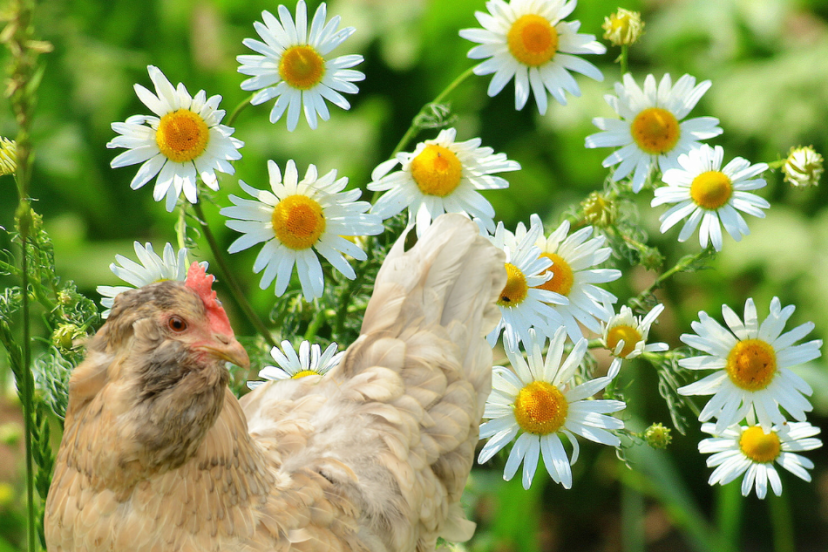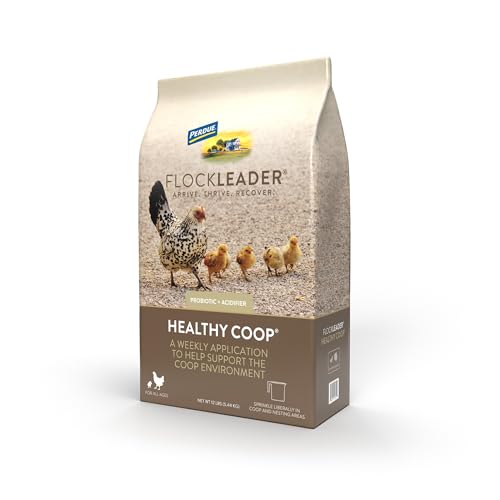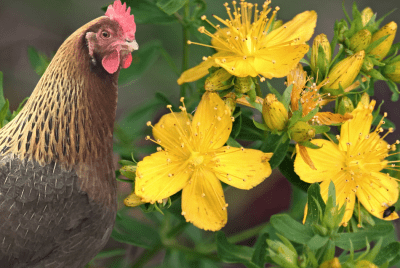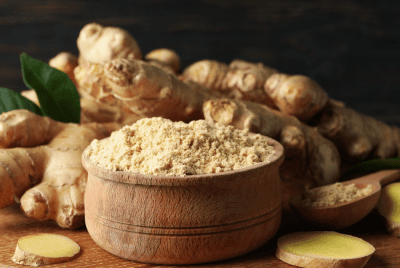7 Secret Herbs Every Chicken Owner Should Know About?
Most chicken owners are always looking for ways to ensure the health and well-being of their beloved feathered friends. Incorporating secret herbs into their diets can have amazing benefits for their overall health. In this blog post, we will uncover seven secret herbs that every chicken owner should know about to promote optimal health in their flock. By harnessing the power of herbs, you can help your chickens thrive and lead happy, healthy lives.
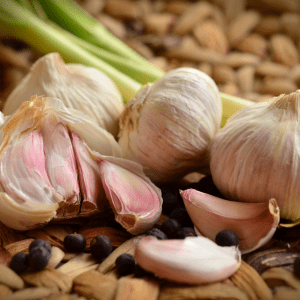
Key Takeaways:
- Garlic: Acts as a natural antibiotic and immune booster for chickens.
- Ginger: Helps with digestion and can reduce inflammation in chickens.
- Oregano: Contains antibacterial and antiviral properties to support chicken health.
- Thyme: Has antioxidant properties and can boost respiratory health in chickens.
- Parsley: Rich in vitamins and minerals, parsley can improve egg quality in chickens.
The Power of Parsley
Boosting Reproductive Health
One herb that every chicken owner should know about is parsley. Parsley is not only a tasty addition to your hens’ diet but also offers fantastic benefits for their reproductive health. It contains high levels of vitamins A and C, as well as iron and folate, which can help support egg production and fertility in your feathered friends.
Parsley Prep and Serving Tips
Health include parsley in your chickens’ diet by adding it to their feed or scattering it in their yard for them to peck at. Fresh parsley can also be chopped up and sprinkled into their water for an extra boost of nutrients. If you’re looking for ways to incorporate more parsley into your chickens’ diet, consider the following tips:
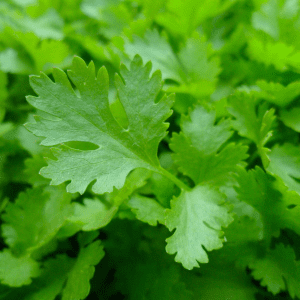
- Chop it up: Chop fresh parsley finely to make it easier for your chickens to eat.
- Mix it in: Mix parsley with other herbs or vegetables to create a balanced diet for your chickens.
One great way to ensure your chickens are benefiting from the power of parsley is to plant it in their coop or yard so they can graze on it whenever they please.
Perceiving their preferences and adjusting accordingly will help keep your flock healthy and happy.
To Remember: While parsley offers many benefits for your chickens, moderation is key.
Too much parsley can lead to digestive issues, so be sure to provide it as a supplement rather than a primary food source.
By incorporating parsley into your chickens’ diet in a safe and controlled manner, you can harness its powerful properties for the health and well-being of your flock.
The Marvels of Mint
Mint as a Pest Repellent
Pest problems bothering your chickens? Mint is here to the rescue! This versatile herb is a powerful pest repellent that can help keep unwanted bugs and insects away from your flock. Simply plant a few mint leaves around your coop or sprinkle dried mint in nesting boxes to ward off pests naturally.
Freshen Up Your Coop with Mint
One of the fantastic benefits of mint is its ability to freshen up your chicken coop. Not only does mint have a refreshing aroma that can mask any unpleasant odors, but it also has antibacterial properties that can help keep your coop clean and sanitary. By incorporating mint into your coop maintenance routine, you can create a healthier and more pleasant environment for your feathered friends.
A sprinkle of fresh mint leaves in the nesting boxes or mint vital oil added to coop cleaning solutions can work wonders in keeping your coop smelling fresh and clean. Additionally, the antibacterial properties of mint can help prevent the spread of diseases among your flock, promoting their overall well-being. So why not give your chickens the gift of minty freshness today?
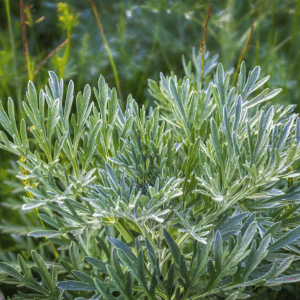
The Wonders of Wormwood
Natural Worming with Wormwood
After welcoming chickens into your homestead, one crucial aspect of their care is keeping them healthy.
One natural way to keep parasites at bay and promote good health in your flock is by utilizing the wonders of Wormwood.
This herb is known for its powerful properties that can help in naturally deworming chickens.
Planting and Harvesting Tips
The Wormwood plant is easy to grow and maintain, making it a convenient addition to any chicken owner’s garden. To ensure a fresh supply of this wonder herb, plant it in a sunny spot with well-draining soil.
Harvest the leaves before the plant flowers for the best potency.
- Plant Wormwood in a sunny spot with well-draining soil.
- Harvest leaves before the plant flowers for best potency.
- Perceiving the growth of the plant is crucial for harvesting at the right time.
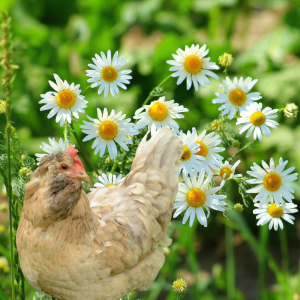
The Charm of Chamomile
Calming Your Flock
Not only is chamomile a delightful herb for humans, but it also has incredible benefits for your feathered friends!
Chamomile can help in calming your flock, especially during stressful situations like introducing new members or during thunderstorms. It’s a natural way to promote relaxation and reduce anxiety in chickens.
Growing Chamomile for Your Chickens
Charm your chickens by growing chamomile in your backyard! This herb is easy to cultivate and requires minimal maintenance. All you need is well-drained soil, plenty of sunlight, and some seeds or seedlings to get started.
Your chickens will love pecking at the delicate flowers and foliage.
Chamomile is not only soothing for your chickens, but it also has antimicrobial properties that can benefit their overall health. By incorporating chamomile into their diets, you can help prevent infections and promote a strong immune system in your flock. Plus, the calming effects of chamomile can lead to happier and healthier chickens in the long run.
The Magic of Marigold
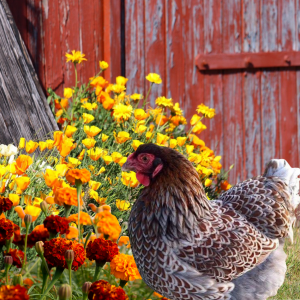
Marigold for Vibrant Egg Yolks
Now let’s talk about the magic of marigold for your chickens!
Did you know that marigold petals can work wonders on your hens’ egg yolks? These vibrant flowers can give your chicken’s egg yolks a rich, golden hue that will leave you amazed.
Easy Marigold Mixes for Feeding
Yolks When considering feeding your chickens, incorporating marigold into their diet can be incredibly beneficial.
It is easy to create tasty and nutritious mixes that your flock will love.
Adding a sprinkle of dried marigold petals to their feed or mixing fresh petals into their treats can provide important nutrients to keep your chickens healthy and happy.
The Greatness of Garlic
Boosting Immunity Naturally
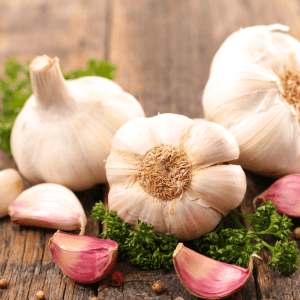
All chicken owners want their feathered friends to be healthy and happy.
An vital herb for boosting immunity in chickens is garlic.
Garlic is a natural immune booster that can help keep your flock strong and resilient against common poultry illnesses.
Integrating Garlic into Your Chickens’ Diet
The key to reaping the benefits of garlic for your chickens is to incorporate it into their diet.
The good news is that garlic is easy to add to their feed. Simply crush a clove or two and mix it in with their regular food.
The strong antibacterial and antiviral properties of garlic can help ward off infections and keep your chickens in top health.
Diet is crucial for the overall health and well-being of your chickens.
By adding garlic to their diet, you are providing them with a natural and effective way to boost their immune system and prevent common illnesses.
Be sure to consult with a poultry nutritionist to determine the right amount of garlic to incorporate into their diet based on the size of your flock.
The Significance of Sage
Sage for Overall Flock Wellness
Despite its small size, sage is a powerful herb that can have a big impact on the overall wellness of your chicken flock. Sage is known for its antibacterial and anti-inflammatory properties, which can help keep your birds healthy and happy. Adding sage to their diet or surroundings can boost their immune system and promote better digestion.
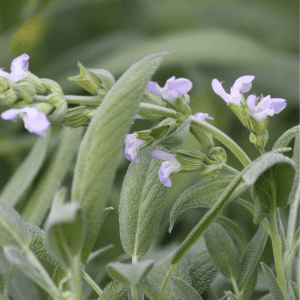
Crafting a Sage Paradise for Your Birds
For chicken owners looking to create a sage paradise for their feathered friends, incorporating this herb into their coop and yard can provide numerous benefits.
Sage can act as a natural insect repellent, keeping pesky bugs at bay.
It also has a calming effect on chickens, reducing stress levels and creating a peaceful environment for your flock.
Birds love to peck and explore their surroundings, so planting sage bushes in their outdoor area can not only provide them with a tasty treat but also stimulate their natural foraging instincts.
Remember to always provide a variety of herbs and plants to keep them engaged and healthy.
Calendula for Enhanced Yolk Color
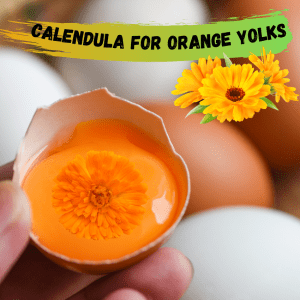
Calendula, often known as pot marigold, is a powerhouse herb for chickens. Packed with antioxidants, it supports their immune system, helping them fend off diseases naturally. Its anti-inflammatory properties aid in healing wounds and soothing skin irritations, promoting overall health. The vibrant petals can be added to their diet, enhancing egg yolk color while providing essential nutrients. Plus, calendula’s natural antibacterial qualities help maintain gut health, reducing the risk of infections. By incorporating calendula into their routine, you can ensure happier, healthier chickens that thrive well in their environment, leading to better egg production and a vibrant flock!
In the later years as a chicken breeder I went to the trouble of finding organic chicken mix to feed my chickens. I did not want to be eating GMO grains through my chickens. By doing this I noticed better egg yolk color as I believe my chickens were healthier. Then I added the calendula petals and the yolks got as dark as they were ever going to get. A plate of eggs for breakfast with really orange yolks is really appetizing.
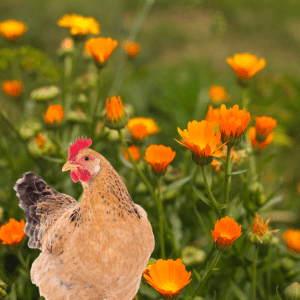
What Can Thyme Do For Chickens?
Thyme can be a beneficial addition to a chicken’s diet and environment in several ways:
- Natural Antioxidant: Thyme contains antioxidants that can help boost the immune system of chickens, supporting their overall health.
- Antimicrobial Properties: Thyme has natural antimicrobial properties that can help reduce harmful bacteria in the coop. Some chicken keepers add thyme to nesting areas or dust baths to take advantage of this.
- Respiratory Health: Thyme is sometimes used to support respiratory health in chickens due to its essential oils. Some people add thyme to their chickens’ water or feed to help maintain clear airways.
- Flavor and Enrichment: Adding fresh or dried thyme to feed can make the diet more palatable and provide enrichment, promoting natural foraging behavior.
- Insect Repellent: Thyme can act as a natural insect repellent, helping to keep pests like mites or lice at bay when used in the coop environment.
As always, when introducing any new herb or supplement to your chickens’ diet or environment, it’s wise to do so gradually and observe how they respond.
Summing up on Best Herbs for Chickens
Presently, every chicken owner should be familiar with these seven secret herbs to keep their flock healthy and happy.
Adding garlic, oregano, cinnamon, parsley, peppermint, turmeric, and thyme to your chickens’ diet can provide numerous health benefits and boost their immune system.
By incorporating these herbs into their routine, you can help prevent illnesses and promote overall well-being for your feathered friends. So don’t wait any longer – start harnessing the power of these herbs for your chickens today!
FAQ’s about Best Herbs for Chickens
Q: What are the 7 secret herbs every chicken owner should know about?
A: The 7 secret herbs every chicken owner should know about are garlic, oregano, thyme, basil, parsley, sage, and mint.
Q: How can garlic benefit my chickens?
A: Garlic is known for its immune-boosting properties and can help chickens fight off illnesses and parasites.
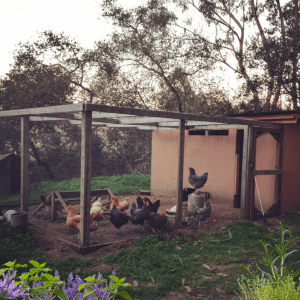
Q: What is the role of oregano in a chicken’s diet?
A: Oregano has antibacterial and antiviral properties that can help keep your chickens healthy and improve egg production.
Q: How does thyme benefit chickens?
A: Thyme is a natural insect repellent and can also aid in digestion and respiratory health for chickens.
Q: Why should chicken owners consider using basil?
A: Basil is rich in vitamins and antioxidants that can promote overall health and well-being in chickens.
How to Get Rid Of Flies in a Chicken Coop!
10 Effective Ways to keep Snakes out of your Chicken Coop
How to Keep Raccoons out of your Coop

